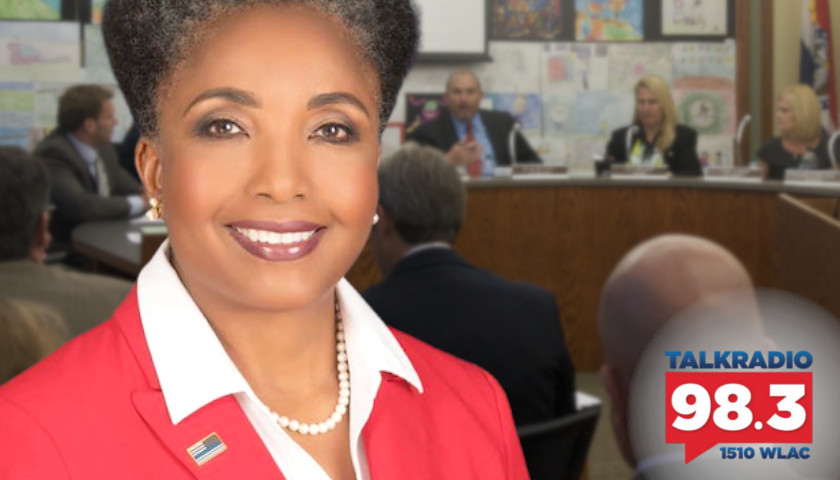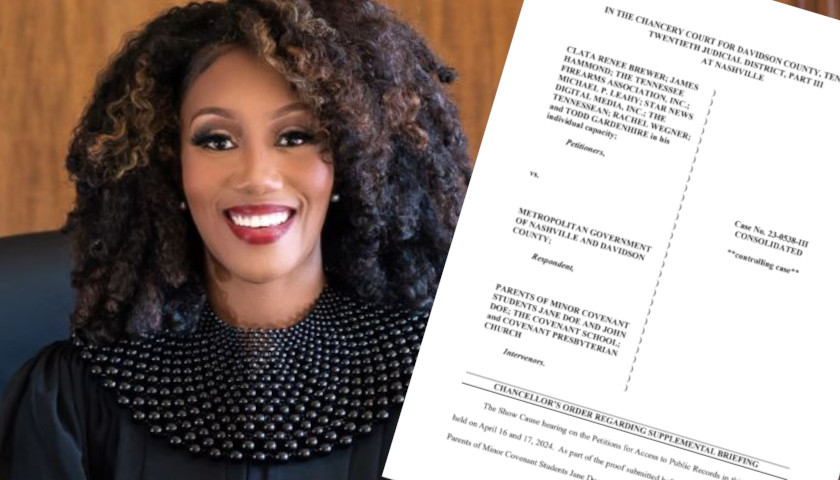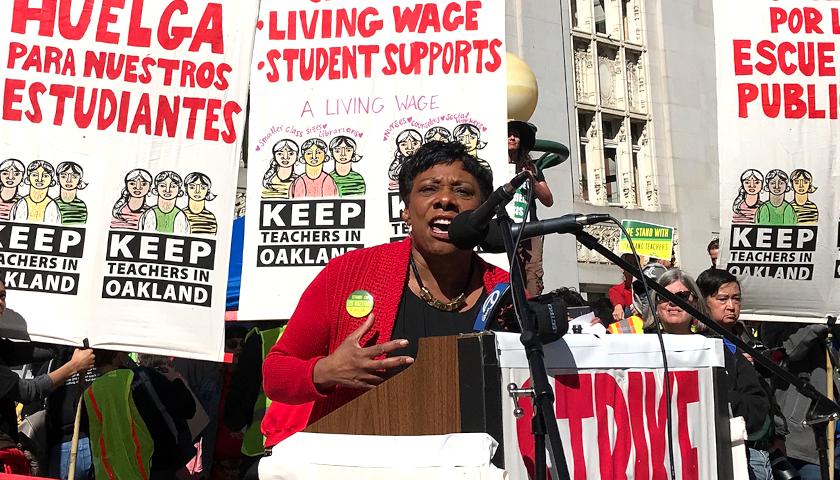Live from Music Row, Thursday morning on The Tennessee Star Report with Michael Patrick Leahy – broadcast on Nashville’s Talk Radio 98.3 and 1510 WLAC weekdays from 5:00 a.m. to 8:00 a.m. – host Leahy welcomed all-star panelist Carol Swain in-studio to discuss the mechanics of her Real Unity Training Solutions company and how they equip experienced and new school board members to understand the law and communicate with parents and teachers to perform their jobs more effectively.
Leahy: In the studio, all-star panelist Clint Brewer, recovering journalist, and all-star panelist Carol Swain. Carol has been traveling all around the country with a busy schedule. Have you ever been busier in your life, Carol?
Swain: I don’t think so. And I’m supposed to be retired, and I don’t see real retirement in my future. There are so many things that I feel like I need to do, I have to do. But I am planning to take more time for writing next year.
Leahy: Do you have a book in the works?
Swain: Finally, my memoir.
Leahy: Oh! Do you have a publisher yet?
Swain: Yes, I think so.
Leahy: Good. I think your memoir will be, I think that will be a big hit, because you’ve got an unusual story.
Swain: But right now I’m working on the plan to complete the manuscript.
Leahy: Good. I want to go back to what we were talking about. Very interesting. You’ve got this new company, Carol Swain’s Real Unity Training Solutions, and you’ve got your very first Tennessee State Board of Education-approved program for school board members. It’s for new school board members, or for any school board members?
Swain: For new and experienced school board members. And it will really benefit everyone because we hear a lot of discussion about DEI and CRT. And some people call it the anti-CRT legislation that Tennessee passed.
Leahy: These acronyms are making my head spin. DEI: Diversity, Equity, and Inclusion, and Critical Race Theory.
Swain: And so what was passed was a prohibited concepts law, and there are 14 different prohibited concepts that are part of the law. And what the state of Tennessee has done is to require every school board member to take a course on the law.
And so there are seven areas that are covered in the courses, so at the end of the training day, they should be proficient in these areas.
Leahy: A little description of the course: Dr. Carol Swain and her team offer a one-day course designed to help you as a school board member, One; understand Tennessee’s prohibited concepts in curriculum law. Actually, this was one passed in May of 2021. The 14 that Scott Cepicky helped organize.
Swain: Yes.
Leahy: It was not specifically described as anti-CRT, but it prohibited the teaching of those tenets.
Swain: As well as other things that were considered dangerous concepts that had to do with this “toxic masculinity,” how males were treated, and just various ideas.
Also the singling out of certain religions. So if it’s applied right and understood, it should protect all students’ rights as well as teachers.
Leahy: And basically, you also distinguish between the prohibited concepts and hard truths of American history. The critics, when the law was under discussion, they would say, well, you don’t want to talk about the hard truth of American history. One of those is slavery, for instance. That existed.
Swain: Right. And even with the civil rights movement and so much of American history, there are revisionist versions of history that have been documented.
But I think it’s important for our students to learn history, but it shouldn’t be politicized and it should be age appropriate. We also make sure that people understand our civil rights laws and how these apply to education in K through 12.
Leahy: What’s interesting about this, a couple of things I note. So this is a seven-hour approved credit course. What I didn’t know is that the state of Tennessee has new training requirements for school board members.
For new members, you have to have 21 hours. I guess that’s in the first year, a minimum of seven hours each fiscal year for experienced members.
So if you’re an experienced school board member, you could go to this one training and you could knock out your training requirement.
Swain: And I guarantee that anyone who takes the course, even if they are an experienced school board member, will learn valuable information that will help them understand what’s taking place in our country, the discussions. They will be better equipped to talk with parents as well as teachers and to perform their jobs more effectively.
Leahy: Let me bring Clint Brewer into this discussion. Here in Tennessee, we see that there are, I think it’s what they call them are local education agencies, like 145, 95 counties. So each county is a local education agency. And then, is that the right number?
Brewer: City school, city school board, or special school district?
Leahy: Franklin City.
Brewer: Lebanon Special School District.
Leahy: Yes, exactly. Then when we see the school board job, you run for it. It’s not like it pays any money. Does it?
Brewer: Some of them I’m sure have a stipend.
Leahy: But it’s like if you did it on a per-hour basis …
Swain: I think Nashville pays well, doesn’t it?
Brewer: Yes it does. But in a lot of these rural counties, it’s basically volunteer work. Howard Baker used to tell people if they wanted to run for public office, start by running for school board.
Leahy: Well, you certainly learn a lot. And increasingly, I would say it is a thankless and difficult job.
Brewer: It is.
Leahy: I would say. But I don’t know. I mean, people do it out of duty, I think, and they start out highly motivated. Carol, go ahead.
Swain: People are doing it now because they care about our children and what’s taking place in the classroom, and the fact that we have such low academic achievements for all of our children. It’s not just minorities. Our school children across America are failing.
Leahy: They put out the scores, the TN Ready Scores, back in June and July. Every school district is – every public school district in the state – is not doing so hot. Even the ones that are at the top, they’re not doing so well.
Swain: Many of them have their priorities wrong, I believe.
Listen to today’s show highlights, including this interview:
– – –
Tune in weekdays from 5:00 – 8:00 a.m. to The Tennessee Star Report with Michael Patrick Leahy on Talk Radio 98.3 FM WLAC 1510. Listen online at iHeart Radio.
Photo “Carol Swain” by Carol Swain. Background Photo “School Board Meeting” by KOMUnews. CC BY 2.0.








